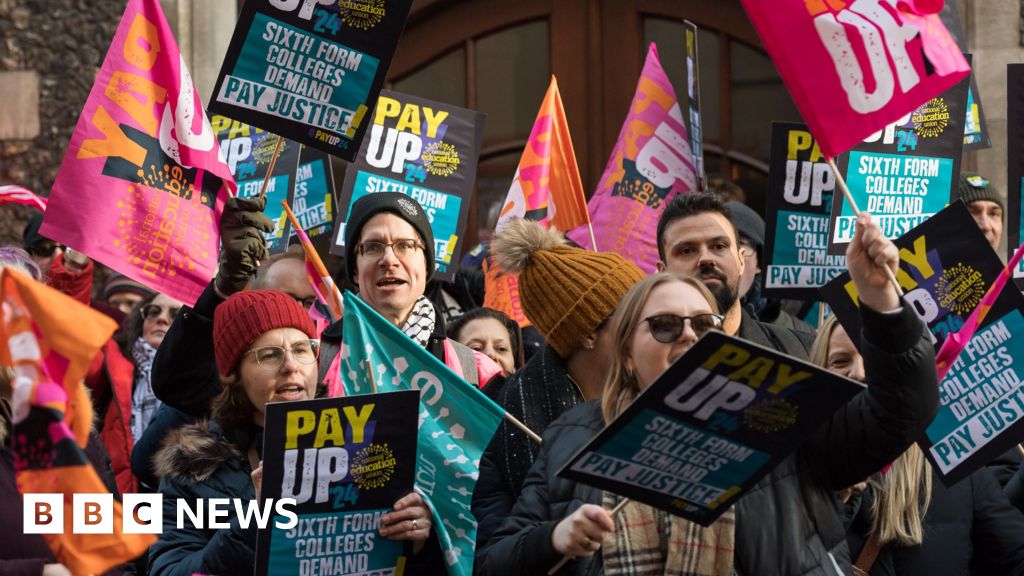‘I don’t know what we’ll do’ – Vapers panic-buy ahead of disposables ban
17 minutes agoShareSaveRuth CleggHealth and wellbeing reporterShareSaveCara HallinanCara Hallinan says she and many of her friends are feeling very nervous about the looming disposable vape ban.In fact, she says: “I’m not sure what we are going to do.”The 25-year-old took up vaping five years ago.One of her friends gave her a puff on theirs and that was it, she could finally wean herself off cigarettes.Cara says it was cherry fizz flavoured vapes which helped her quit her 20-a-day smoking habit, and now, as the ban looms, she’s buying as many as she can before they become illegal to sell or supply across the UK.”I’ve been buying boxes of them from my local discount store. They’re trying to get rid of them, so I’ve been getting ten vapes for £20.”Cara says she’s got about 40 vapes now, enough to last a few weeks, but she wants to stockpile enough to get her through the summer.Cara HallinanFrom 1 June, it will be illegal to buy or sell disposable vapes. Only devices considered to be reusable will be legal. They must have a rechargeable battery, a replaceable coil and be refillable.Cara understands there will still be a wide variety of vapes out there to buy, but she’s not convinced they will work for her.”With everything else going on in my life, what if I forget to recharge my vape? And then I wake up one morning without a vape, or I run out of charge at work?”I’m used to the ease of being able to buy a disposable one when I need.”Cara is one of more than three million ex-smokers who have made the switch from cigarettes to vapes over the past few years.While vapes are considered a healthier alternative to cigarettes, there are concerns that vaping provides a gateway into nicotine addiction – with disposable vapes enticing children and young people with their fruity flavours and cheap prices.Even though rechargeable vapes are the most popular, there are still around 30% of vapers who prefer to use disposable vapes.”One of the big attractions is ease of use,” Dan Marchant, owner of online retailer, Vape Club, and co-founder of the UK Vaping Industry Association (UKVIA), says.”Buying a disposable vape is like buying a packet of cigarettes – just nip to the shop and get one over the counter.”He says he’s seen sales of the most popular flavours of vapes double over the past few weeks as some customers stock up.Another online retailer, Haypp, has also seen sales rise ahead of the ban.Haypp’s scientific director, Dr Marina Murphy, said: “Daily sales are now regularly surpassing even our Black Friday peaks, which had previously been our biggest sales days.”Some are worried about the change in taste. Disposable vapes tend to be sweeter than refillable vapes due to them often having more sweeteners and nicotine salts in the E-liquid.’Smoker of the year award’After 40 years of chain-smoking cigarettes, Baroness Claire Fox of Buckley says it was the strawberry and banana flavour disposable vapes that finally helped her quit.”They worked a treat and for the past 18 months I have been smoke-free.”The 64-year-old peer admits it wasn’t easy, but after being advised by two doctors to try vapes, she’s gone from being the “proud winner of the smoker of the year award” to a life free from the harms of tobacco.Andrew FirthAnd now, she says, she is dreading 1 June when the disposable vape ban comes in.”I’ve been stocking up with stashes of brightly-coloured vape boxes both at home and at work.”The rechargables have a metallic, battery taste which I don’t like.”She says disposable vapes have had a “miraculous impact on smoking levels”.”Finally, we have a smoking cessation device that works and we ban it – it’s counter- productive and daft.”The outspoken peer, who often berates legislation she sees as infringing civil liberties, says environmental concerns are clearly trumping public health concerns.The UK government wants to reduce the impact on the environment – an estimated five million disposable vapes were thrown away last year – and cut the number of children and young people vaping.Health experts agree anyone who does not smoke should not start vaping, as it may cause long-term damage to lungs, hearts and brains.A Censuswide poll, commissioned by Vape Club, asked 2,000 vapers across the UK how their habits were going to change in the wake of the ban next month.While 49% of people who use disposable vapes said they were going to switch to different types of rechargeable devices, and 16% said they were going to stop vaping altogether, it has also produced some “worrying results”, Mr Marchant says.”We found that 11% said they were going to stockpile after the ban – by going abroad and buying from countries where disposables are sold legally and then bringing them back into the UK.”And more worryingly, 18% said if they couldn’t get hold of disposable vapes they would go back to smoking after the ban comes in.”Ruth CleggThis is something, Nick, who owns Mist Vapes, recognises, as he points to the local newsagent a few shops down the road in Whalley Range, south Manchester.”Many of my regular customers say they will stop vaping when the ban comes in, instead of coming here, they’ll go to Booze and Cigs down the road and pick up a pack of cigarettes and go back to smoking.”He is worried about the future of his business.He points to the rows of pastel-coloured boxes, lined up on shelves that cover a whole wall in his shop. There are popular flavours like pineapple ice, rainbow and blueberry sour.”They’ll have to go,” he says. “And that’s nearly £6,000 worth of stock down the drain.”I only set up my business a year ago, so it’s relatively new. I knew the ban was coming, but with 90% of my sales being disposable, I’ve had to keep on restocking.”He believes the government has failed small retail shops like his own.”I don’t think it’s going to make much difference to vaping habits – many of the rechargeable vapes now look the same as the disposable, you can buy them pre-filled and charged.”He turns one over – the only difference he says is the charging point at the bottom.”I’m selling the rechargeable at the same price but with less of a mark-up.”Ruth CleggThe government says disposable vapes “blight our towns and cities”. Circular economy minister, Mary Creagh, says the ban will boost the economy long-term.”This is an important step on the road to a circular economy, where we use our resources for longer, clean up our communities, accelerate the path to net-zero and create thousands of jobs across the country.”
Read more →






